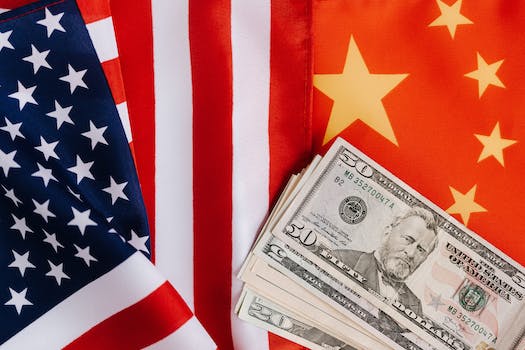

-
Table of Contents
The Role of NAM and G77 + China in Global Affairs: Empowering Developing Nations for a Sustainable Future.
Introduction
The Non-Aligned Movement (NAM) and the Group of 77 (G77) + China play significant roles in global affairs. NAM is a group of countries that are not formally aligned with any major power bloc, aiming to promote peace, independence, and development. G77 + China is a coalition of developing countries, advocating for their collective interests and addressing economic and social issues on the global stage. Together, these organizations have been influential in shaping global policies and fostering cooperation among nations.
The Historical Significance of NAM and G77 + China in Global Affairs
The Non-Aligned Movement (NAM) and the Group of 77 plus China (G77 + China) have played significant roles in shaping global affairs throughout history. These two organizations have emerged as powerful voices for developing countries, advocating for their interests and promoting a more equitable world order.
The NAM was established in 1961 during the height of the Cold War. It was a response to the bipolar division of the world into two power blocs led by the United States and the Soviet Union. The founding members of the NAM sought to maintain their independence and avoid alignment with either superpower. They believed that by remaining non-aligned, they could pursue their own national interests and contribute to global peace and stability.
The NAM quickly gained traction and became a platform for developing countries to voice their concerns and aspirations. It provided a forum for these nations to discuss common challenges, such as poverty, colonialism, and inequality. Through its conferences and summits, the NAM facilitated dialogue and cooperation among its member states, fostering a sense of solidarity and unity among the developing world.
Similarly, the G77 + China was established in 1964 to promote economic cooperation and collective bargaining power for developing countries. The group initially consisted of 77 member states, but has since expanded to include over 130 countries. The G77 + China aims to address the economic disparities between developed and developing nations, advocating for fair trade practices, debt relief, and technology transfer.
Both the NAM and the G77 + China have been instrumental in shaping global affairs by challenging the dominance of the developed world. They have been vocal advocates for the rights of developing countries, pushing for reforms in international institutions such as the United Nations and the World Trade Organization. Through their collective strength, these organizations have been able to influence global policies and promote the interests of the Global South.
One of the key achievements of the NAM and the G77 + China has been their role in decolonization efforts. During the 1960s and 1970s, many African and Asian countries were still under colonial rule. The NAM and the G77 + China provided a platform for these nations to demand independence and self-determination. Through their collective efforts, they were able to garner international support and put pressure on colonial powers to grant independence to their colonies.
Furthermore, the NAM and the G77 + China have been at the forefront of advocating for a more just and equitable global economic order. They have called for reforms in international financial institutions to address the imbalances and inequalities that exist in the global economy. They have also championed the cause of debt relief for developing countries, recognizing that unsustainable debt burdens hinder their development efforts.
In conclusion, the NAM and the G77 + China have played crucial roles in shaping global affairs. These organizations have provided a platform for developing countries to voice their concerns and aspirations, challenging the dominance of the developed world. Through their collective strength, they have been able to influence global policies and promote the interests of the Global South. The historical significance of the NAM and the G77 + China lies in their efforts to decolonize the world and create a more just and equitable global order. As we move forward, it is essential to recognize and appreciate the contributions of these organizations in shaping a more inclusive and balanced world.
The Influence of NAM and G77 + China in Shaping Global Policies

The Non-Aligned Movement (NAM) and the Group of 77 plus China (G77 + China) have played significant roles in shaping global policies. These two organizations have been instrumental in representing the interests of developing countries and promoting their collective voice on the international stage.
NAM, founded in 1961, emerged as a response to the Cold War and the division of the world into two blocs. Its primary objective was to maintain the independence and sovereignty of member states by avoiding alignment with any major power. Today, NAM consists of 120 member countries, making it one of the largest international organizations in the world.
One of the key ways in which NAM influences global affairs is through its advocacy for the principles of self-determination, non-interference, and peaceful coexistence. NAM has consistently called for the respect of national sovereignty and the right of all nations to determine their own political, economic, and social systems. This stance has been particularly important in addressing issues such as colonialism, imperialism, and foreign intervention.
NAM has also been active in promoting disarmament and nuclear non-proliferation. The movement has consistently called for the elimination of nuclear weapons and the establishment of nuclear-weapon-free zones. NAM's efforts in this regard have contributed to the adoption of several international treaties and agreements aimed at reducing the threat of nuclear weapons.
Similarly, the G77 + China has been influential in shaping global policies, particularly in the areas of development and economic cooperation. Established in 1964, the G77 initially consisted of 77 developing countries, but its membership has since expanded to 134 countries. China, although not a member of the G77, has been closely associated with the group and often aligns its positions with those of the G77.
The G77 + China has been a strong advocate for the interests of developing countries in international forums such as the United Nations. The group has consistently called for a more equitable global economic order, emphasizing the need for increased financial assistance, technology transfer, and market access for developing countries. Through its collective bargaining power, the G77 + China has been able to influence the outcomes of international negotiations on issues such as trade, debt relief, and climate change.
Furthermore, both NAM and the G77 + China have been active in promoting South-South cooperation. This refers to collaboration among developing countries in areas such as trade, investment, and technology transfer. By fostering closer ties among developing countries, NAM and the G77 + China have sought to reduce their dependence on developed countries and enhance their collective bargaining power in global affairs.
In conclusion, NAM and the G77 + China have played significant roles in shaping global policies. Through their advocacy for the interests of developing countries, these organizations have been instrumental in promoting principles such as self-determination, non-interference, and peaceful coexistence. They have also been influential in addressing issues related to disarmament, development, and South-South cooperation. As the world continues to grapple with complex global challenges, the role of NAM and the G77 + China in shaping global affairs is likely to remain crucial.
The Future Prospects of NAM and G77 + China in Global Governance
The Non-Aligned Movement (NAM) and the Group of 77 plus China (G77 + China) have played significant roles in global affairs. As the world continues to evolve, it is important to assess the future prospects of these two organizations in global governance.
NAM, founded in 1961, emerged as a response to the Cold War and the division of the world into two blocs. Its primary objective was to promote the interests of developing countries and ensure their independence from the influence of major powers. Over the years, NAM has grown to include 120 member states, making it one of the largest international organizations.
Despite its size, NAM has faced criticism for its lack of cohesion and effectiveness. Some argue that the organization has become irrelevant in a world where power dynamics have shifted. However, NAM continues to provide a platform for developing countries to voice their concerns and advocate for their interests. Its commitment to multilateralism and the principles of sovereignty and non-interference in the internal affairs of states remain relevant in today's global context.
The G77 + China, established in 1964, is a coalition of developing countries that aims to promote economic cooperation and enhance the bargaining power of its members in international negotiations. With 134 member states, the G77 + China represents a significant portion of the global population and economy.
In recent years, the G77 + China has gained prominence in global affairs. Its members have successfully pushed for reforms in international financial institutions to better reflect the interests of developing countries. The G77 + China has also been at the forefront of climate change negotiations, advocating for the needs of vulnerable nations and pushing for ambitious targets to mitigate the effects of global warming.
The future prospects of NAM and the G77 + China in global governance are promising. As the world becomes more interconnected, the voices of developing countries are becoming increasingly important. NAM and the G77 + China provide platforms for these countries to collectively address global challenges and shape international norms and policies.
However, both organizations face challenges in maintaining their relevance and effectiveness. The rise of regional blocs and the increasing influence of non-state actors have complicated the global governance landscape. NAM and the G77 + China must adapt to these changes and find innovative ways to address the concerns of their members.
One potential avenue for future collaboration is through South-South cooperation. Developing countries have unique experiences and expertise that can be shared to foster economic growth and development. NAM and the G77 + China can facilitate this exchange of knowledge and resources, strengthening the collective voice of the Global South in global affairs.
Furthermore, NAM and the G77 + China can play a crucial role in promoting a more equitable and inclusive global order. They can advocate for reforms in international institutions to ensure that the interests of developing countries are adequately represented. By working together, NAM and the G77 + China can challenge the dominance of major powers and promote a more balanced distribution of power in global governance.
In conclusion, NAM and the G77 + China have important roles to play in global affairs. While they face challenges in maintaining their relevance, their commitment to the interests of developing countries and their collective bargaining power make them valuable actors in global governance. By adapting to the changing global landscape and fostering South-South cooperation, NAM and the G77 + China can shape the future of global governance and promote a more equitable and inclusive world order.
Q&A
1. What is the role of NAM (Non-Aligned Movement) in global affairs?
NAM aims to promote the interests of developing countries, particularly those not aligned with major power blocs. It advocates for peace, decolonization, and economic cooperation among member states.
2. What is the role of G77 + China in global affairs?
G77 + China is a coalition of developing countries that aims to promote their collective economic interests and enhance their negotiating power in international forums, particularly on issues related to development, trade, and climate change.
3. How do NAM and G77 + China contribute to global affairs?
Both NAM and G77 + China provide platforms for developing countries to voice their concerns and influence global decision-making processes. They advocate for fairer international economic and political systems, and work towards addressing the challenges faced by developing nations on various global issues.
Conclusion
In conclusion, the Non-Aligned Movement (NAM) and the Group of 77 (G77) + China play significant roles in global affairs. NAM, consisting of developing countries, aims to promote peace, independence, and sovereignty, while G77 + China focuses on economic cooperation and development. Both groups have been influential in shaping international policies, advocating for the rights and interests of their member states, and addressing global challenges. Their collective efforts have contributed to a more balanced and inclusive global order.









